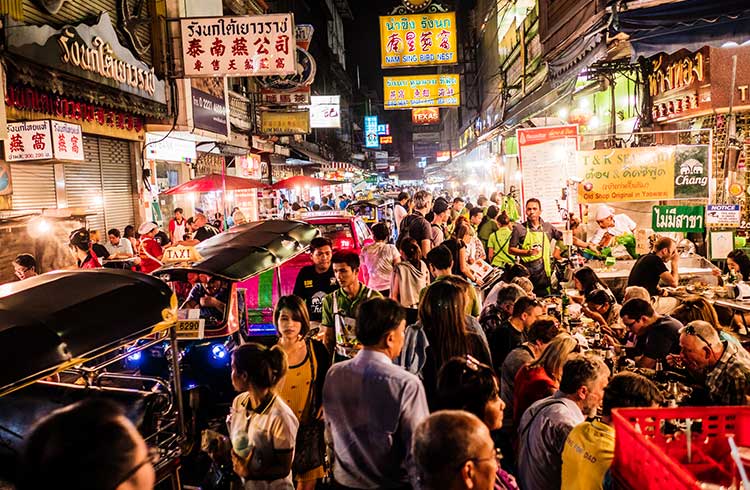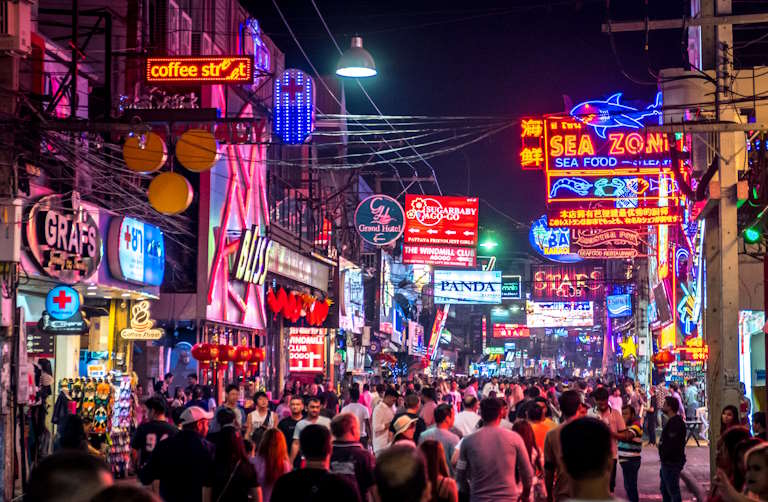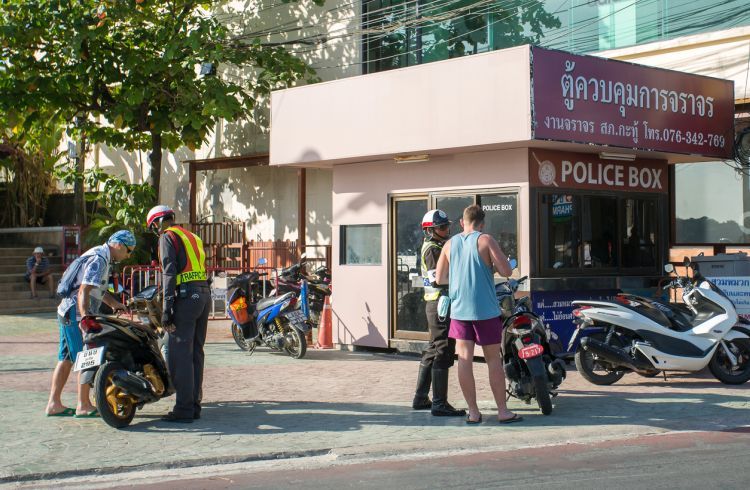Is Thailand LGBTQ+-Friendly? Advice for Travelers
Thailand is one of the most tolerant countries in Southeast Asia, and has a thriving LGBTQ+ scene. But are there limits to what's acceptable?
 Photo © Getty Images/aluxum
Photo © Getty Images/aluxum
- Transgender people in Thailand
- Gay and lesbian acceptance in Thailand
- Public displays of affection
- General safety for LGBTQ+ Travelers?
Thailand is one of Asia’s most LGBTQ+-friendly nations. It’s close to approving same-sex civil partnerships, has a thriving transgender community, boasts hospital services tailored to LGBTQ+ patients, and big Thai companies even offer medical leave for gender reassignment surgery. But that doesn’t mean Thailand’s necessarily an LGBTQ+ travel utopia. Thailand still has a complicated relationship with those communities that’s important to understand before you visit.
Transgender people in Thailand
Very few countries are as welcoming to transgender people as Thailand. It has one of the world’s largest transgender communities, is the biggest destination for gender reassignment surgery on the planet and is a hugely popular tourism destination for transgender people.
Thailand has been so open to transgender people that many transmen and transwomen from across Southeast Asia leave their home countries, where their sexuality is not accepted, and take up residence in Thailand. Thailand is particularly well known for its many transwomen, known locally as “kathoey”.
Whereas in many countries transgender people are marginalized – pushed to the fringes of society – in Thailand they are very much part of the mainstream. On any given day in a big Thai city, such as Bangkok, tourists will likely encounter many transgender people working in offices, hotels, restaurants, and shops. Thousands of people attend Thailand’s annual Miss International Queen, the world’s largest transgender beauty competition.
However, transgender residents in Thailand still face more obstacles and injustices than cisgender people and are sometimes discriminated against in education, recruitment, and in the workplace. It’s also claimed that some transgender people are paid less and offered fewer benefits than their cisgender colleagues.
For transgender tourists, however, Thailand is justifiably a prime destination. In the big cities, and popular tourist resort towns, transgender travelers are commonplace and it is very rare for transgender tourists to face harassment or abuse.
Gay and lesbian acceptance in Thailand
Thailand is becoming more hospitable for gay and lesbian people. The Thai Government has approved a same-sex civil partnership bill to increase the legal rights of gay and lesbian couples, and Bangkok’s top private hospital, Bumrungrad, opened a clinic specifically for LGBTQ+ patients in 2021. Well-known Thai communications giant, DTAC, announced many new benefits for LGBTQ+ employees in June 2021, including marital leave and family health packages for same-sex couples in civil partnerships.
Homophobia still exists, of course, as it does in every country, but it is rare in Thailand, and becoming less common as young Thai people are reared in a nation that’s increasingly inclusive of gay and lesbian people.
The widespread warmth in Thailand towards the gay and lesbian community was highlighted in April 2021 after a Thai gay couple received death threats from Indonesian internet users for posting photos of their wedding. That prompted a flood of online support and affection for this couple from Thai netizens, as well as Thai media reports defending them.
This explains why Thailand has become a hugely popular tourist destination for gay and lesbian travelers in the last 20 years. As well as acceptance, the country has a lively LGBTQ+ social scene with every major Thai city and beach resort home to many gay and lesbian venues. Bangkok’s Silom district, which teems with gay bars and nightclubs, is widely considered the largest gay entertainment area in Asia.
Public displays of affection
In general, all public displays of affection are much rarer in Thailand than in most Western countries. While Thai couples of all sexual orientations will commonly hug or hold hands in public, anything more intimate than that is unusual. Thais are naturally quite private and reserved and tend to keep their strongest emotions – from affection to anger – for the privacy of their homes. Visitors are advised to follow suit and leave the canoodling for the hotel room.
General safety for LGBTQ+ Travelers?
LGBTQ+ travelers to Thailand should take the same precautions they would in any other country. Hate crimes or discrimination against LGBTQ+ visitors are very rare, however, as in many other countries, social viewpoints are less liberal outside of the main cities, and people in rural Thailand are less accustomed to seeing same-sex couples.
From a safety perspective, LGBTQ+ visitors in Thailand should consider the same issues as all other travelers. Scams, drink spiking, petty theft and road accidents are the four biggest threats to all tourists in Thailand. Where possible, it is best to book day tours, watersport activities, or long taxi trips through the concierge of your hotel, to minimize the risk of being caught up in one of the many scams that target tourists in Thailand.
Drink spiking isn’t rampant in Thailand, but it’s common enough in its busy tourist precincts that you should try to always keep your drink in your hand. Also, keep a close eye on your possessions as petty thieves in Thailand often focus on foreigners.
When it comes to road safety, Thailand has the world’s second-highest rate of road fatalities, and the worst rate of motorcycle fatalities – unless you’re an experienced rider, don’t hire a motorbike. Finally, if you are confronted by a Thai police officer, be polite and show them a photocopy of your passport, which you should always carry with you.
Related articles
Simple and flexible travel insurance
You can buy at home or while traveling, and claim online from anywhere in the world. With 150+ adventure activities covered and 24/7 emergency assistance.
Get a quote


1 Comment